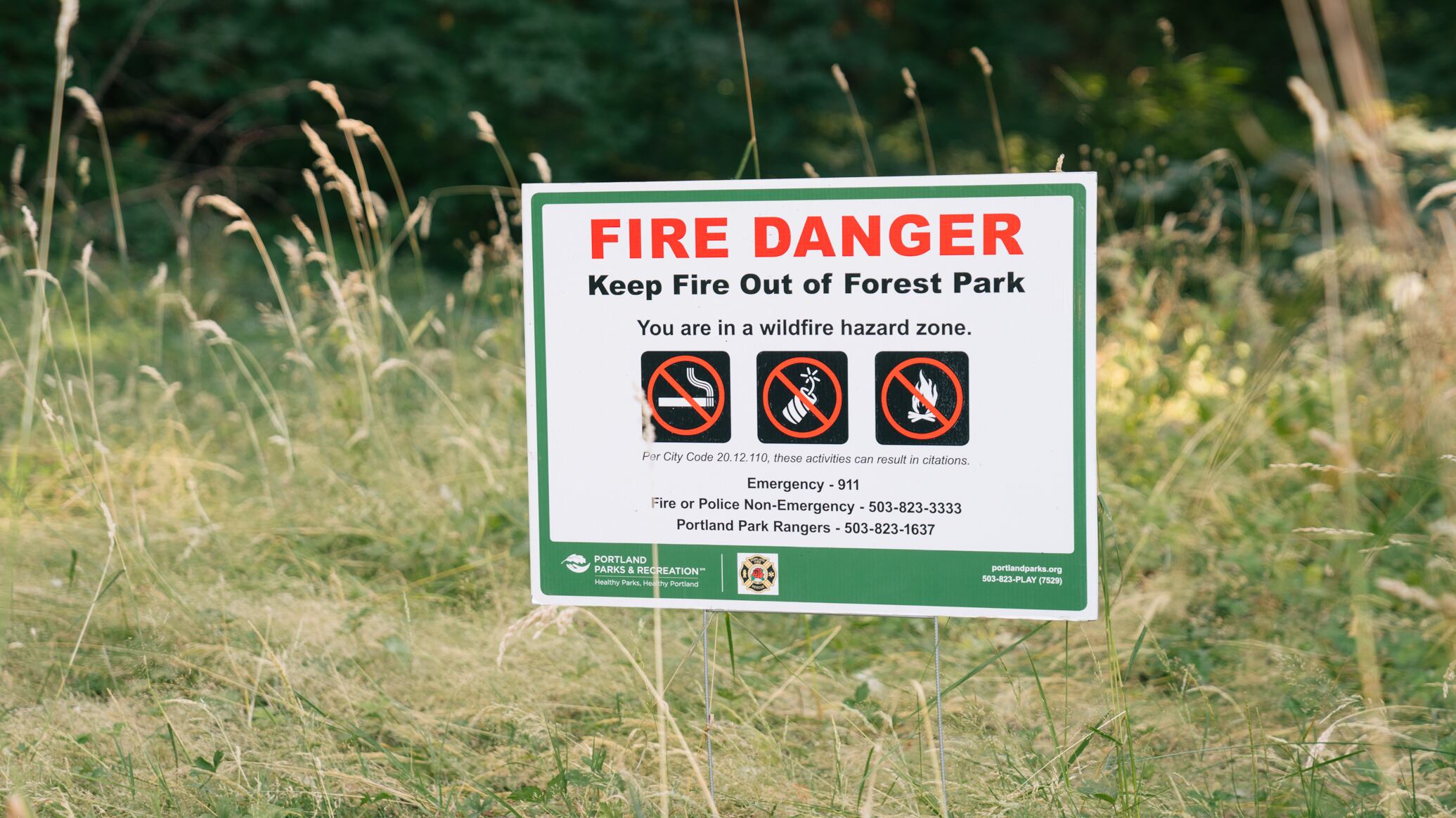In the face of accelerating climate change, Portland Fire & Rescue is seeking funding approval from the City Council this spring to hire someone to plan for potential wildfires in Portland’s urban forests like Forest Park and Powell Butte.
Last year, WW wrote about the risk of Forest Park going up in flames and the increasing worry among city officials that the park is a tinder box just waiting for a spark.
Jonna Papaefthimiou, director of the Portland Bureau of Emergency Management, told WW at the time a fire in Forest Park was “one of the highest threats to public safety in our city.”
Papaefthimiou said warmer temperatures and drier, unmaintained foliage coupled with people living in or near those urban forests in tents or other structures makes for a combustible environment where one spark can turn into a raging fire. (Houses lining the park add flammable materials.)
The bureau is seeking $312,000 of the city’s remaining $104 million in American Rescue Plan Act dollars for the two-year position.
“The threats posed by climate change, increased building density, and houseless individuals living in the urban-rural interface demand that we give appropriate and immediate focus to preparation and planning,” the bureau’s budget request reads. “These are locations where houseless encampments have grown in recent years, putting the houseless populations at significant risk. Additionally, the people and properties that reside in proximity to wildland parks are threatened.”
Firefighters at two nearby stations do routine rides along the narrow walking paths in a heavy-duty Kawasaki golf cart, looking for manmade fire risks like campfire remnants and cigarette butts.
And last summer, the City Council unanimously approved new protocols for more proactively moving campers away from forested areas when deemed a wildfire risk by the city’s fire marshal.
If funded, the position would implement strategies like alert systems, evacuation routes and relocation of campers from urban forest areas and other natural areas that are deemed high risk. The position would work to quicken the deployment of firefighting resources to those areas when a fire begins and try to reduce the chances of an urban forest fire.
The budget request also concedes that the city’s policy during much of COVID-19 not to displace campers resulted in more trash build-up near and in forested areas, increasing the risk of fire.
And in an acknowledgment of the dysfunction of the city’s siloed bureau system, the budget request notes that the fire bureau could not directly ask the city team that sweeps camps to clear campers from urban forestsForest, which, the bureau writes, “further exacerbated conditions in wildland areas.”

